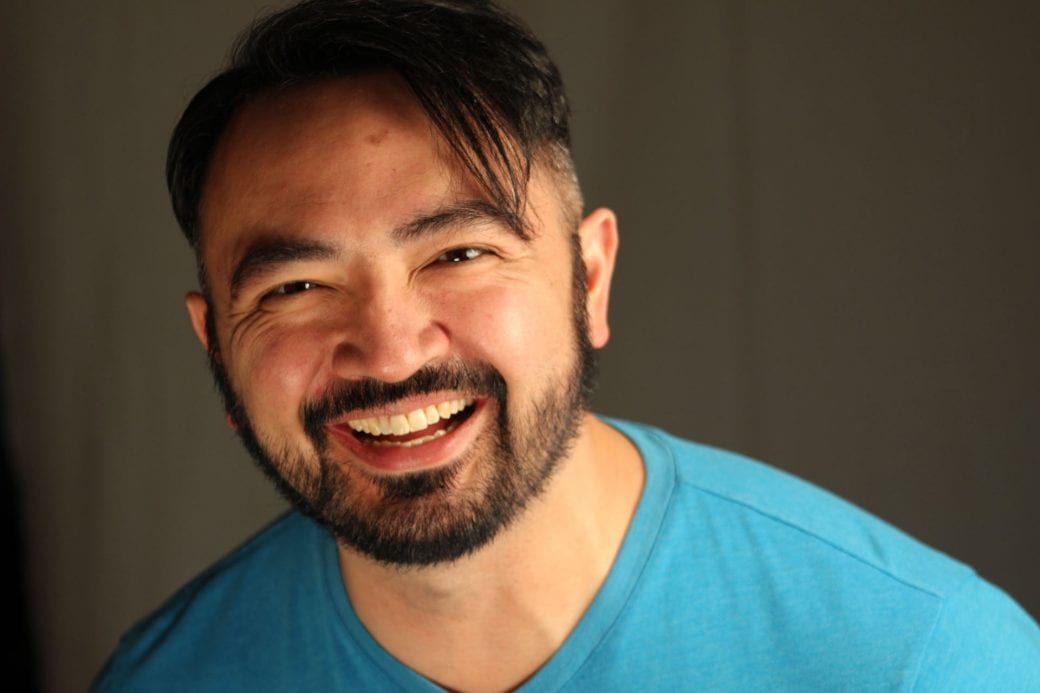An academic working toward a Ph.D. in conflict resolution and a theater artist with experience both on the stage and behind the scenes, Jeff Aguiar doesn’t know exactly what path he’ll take next, but he does know that utilizing art as a form of cooperation and collaboration to peacefully approach dissension will be a part of the journey.
When Aguiar graduated from the University of North Carolina at Greensboro with a bachelor’s degree in theater education, he decided to pursue a post-baccalaureate certificate in nonprofit management. During that effort, he decided to take an elective course that changed where he wanted to spend his energy and how he hoped to share his expertise.
“I ended up in an intro to Peace Theories class, which later moved me to pursue a Master of Arts degree in Peace and Conflict Studies. When I got to that theories class, things made sense to me because we were looking at the ways that I built community through artistry. That melded into this space where I started, for the first time, to really feel like I had a voice in this field.”
After earning his master’s degree, Aguiar continued to work in the theater industry, balancing life and career. He then decided he wanted to pursue a childhood dream and earn his doctorate degree. His search for the right program led him to NSU, and his work here led him to apply for and receive the Art of Peace Scholarship.
The scholarship was established to support research that explores the relationship between art and conflict resolution. The scholarship was founded by Robin Cooper, Ph.D., a faculty member and alumna, in memory of two artists who lived their lives as peacebuilders. It is awarded to a student whose dissertation proposal reflects the incorporation of the arts in his or her research.
“When this particular scholarship came up, it was as if it had been written for me,” Aguiar said. “I know it was not because it existed before I came along, but there was just something about that scholarship that said, ‘This is you.’ For somebody like me who’s lived life on the margins, it made a difference. It said I belonged, and that I mattered.”
Aguiar is studying how art connects with social and community justice. His current efforts were partly inspired by a rally and demonstration that took place in Greensboro, North Carolina, following George Floyd’s murder. Aguiar was contacted by two young artists who wanted to do something, and so he introduced the pair to organizations and people who he thought could help them. The artists planned an event, and Aguiar was in attendance to help with a voter registration drive. As a bystander, it struck him that the artists had not just planned a protest to demand justice and bring awareness—they had organized a cultural program, starting with the black national anthem from a local singer who was also widely recognized as an activist, and continuing with programming designed to build connections between those who attended.
“At that moment, I started to see what I had been pursuing crystallizing. We tend to see arts and peace and conflict in a post conflict setting with a reconciliatory or a restorative stance, and I think that is absolutely true—I’m not resisting that at all,” Aguiar said. “But I think we lose sight of the fact that protest signs are art and that there is creativity deployed in things. I want to really deepen our understanding of how we can utilize the arts as both a practice and a passion to move us through conflict without accessing violence.” In the future, Aguiar anticipates that arts-based peace building will continue to be an essential part of the work he does, but in terms of exactly what that will look like, he doesn’t yet know. “For me, trusting the pathway, trusting the spiral, as it has led me from one place to another, has given me this confidence to say I’m not sure where my foot will land,” he explained. “But one of the things NSU, my faculty, and my dissertation committee have helped me to recognize is that there is all the help and support in the world to lift your foot. Again, I want to express my deep gratitude to Dr. Cooper for her support, guidance, and mentorship through this journey. I look forward to continuing this work and building together, knowing there’s nothing but magic, potential, and chance in terms of where that foot might land.”
For more information on how to support the NSU Halmos College of Arts and Sciences, please contact Diane Klein, director of development for NSU University Advancement, at (954) 262-2171 or via email at kdiane@nova.edu.

